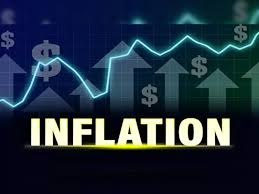Nigeria’s inflation outlook is showing signs of relief as analysts project a continued slowdown in the coming months. This follows new data released by the National Bureau of Statistics (NBS) showing that the headline inflation rate eased in July 2025, supported by exchange rate stability, harvest season supplies, and softer global energy prices. However, experts have also cautioned that new policy costs and structural challenges may keep inflationary pressures alive despite the recent improvements.
According to the NBS, the headline inflation rate dropped to 21.88 per cent in July from 22.22 per cent recorded in June. On a month-on-month basis, inflation rose to 1.99 per cent, which was 0.31 per cent higher than the 1.68 per cent recorded in June. The report also showed that food inflation, which is usually the most felt by households, stood at 22.74 per cent year-on-year in July. On a monthly basis, food inflation slowed slightly to 3.12 per cent from 3.25 per cent in June. Core inflation, which excludes food and energy prices, dropped sharply to 21.33 per cent in July from 27.47 per cent in July 2024. Month-on-month, core inflation fell to 0.97 per cent compared to 2.46 per cent in June, showing a reduction in price pressures across non-food items.
Analysts, however, said that while inflation is gradually slowing, the effect may be limited in the coming months due to new policy-driven costs and food supply challenges. One major concern raised is the new four per cent Free On-Board (FOB) charge introduced in August to replace the one per cent Comprehensive Import Supervision Scheme and seven per cent port surcharge. Experts believe this new policy may push up the cost of imported goods and put pressure on both food and core inflation.
In their weekly report, analysts at Afrinvest projected that headline inflation will remain on a downward path but at a slow pace. They explained that the combination of exchange rate stability, early harvest inflows, and lower global commodity prices should support disinflation. However, they warned that persistent food supply challenges and seasonal pressures may keep month-on-month inflation relatively high. Afrinvest forecast that headline inflation will likely decline to around 21.3 per cent in August.
Similarly, analysts at Meristem Research said they expect the Central Bank of Nigeria’s Monetary Policy Committee to remain cautious in its decisions. According to them, the persistent month-on-month inflationary pressures may force the committee to keep interest rates high in order to anchor expectations and manage risks.
In its macroeconomic update, Comercio Partners noted that the new FOB charge could worsen inflation as higher import costs will trickle down to consumers. The firm explained that the higher cost of clearing goods at the ports will push up prices in the domestic market. They also pointed to the proposed increase in licensing fees for customs agents and freight forwarders, warning that the additional charges would raise operational costs across the supply chain. Comercio Partners added that while the July data showed improvement, food insecurity and supply constraints in many farming regions remain a big challenge. They stressed that lasting disinflation would require reforms, improved food supply chains, and stronger security in agricultural areas.
CardinalStone Research also shared a similar view. The analysts said that in August, inflation is likely to continue its downward trend, helped by falling energy prices. They noted that the distribution strategy of the Dangote refinery, which removes transportation costs for marketers and major consumers, will continue to reduce fuel costs and support disinflation. However, they cautioned that food inflation and seasonal demand for foreign exchange in the third quarter could put pressure on the overall numbers.
Despite the positive signs, the inflation outlook for Nigeria remains a mixed bag. While the stability of the naira, harvest season, and lower energy prices are expected to bring relief to consumers, rising import-related costs and food insecurity continue to pose risks. Experts believe that only a careful balance of monetary policy, government reforms, and improved agricultural productivity will ensure that the current slowdown in inflation becomes sustainable in the long term.
